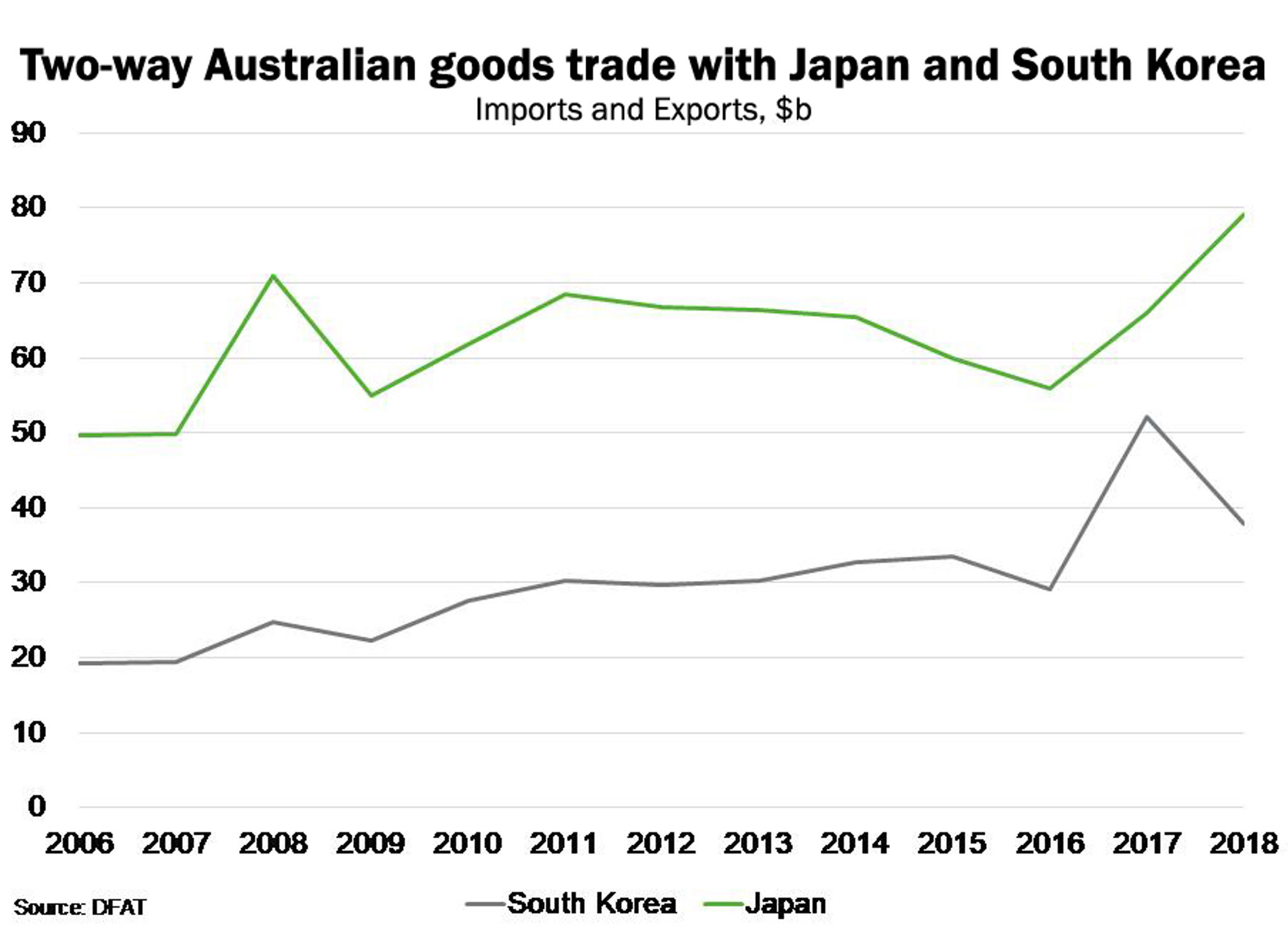Japan/South Korea – Trade dispute could have broad knock-on effects
The recent trade tensions between Japan and South Korea could have broader consequences for global trade and supply chains – and for Australian companies selling into these buoyant export markets.
Tokyo has introduced new export requirements for shipments to South Korea of three chemicals - fluorinated polyimides, photoresists and hydrogen fluoride - crucial to the technology industry. The move requires companies exporting these chemicals to get a licence each time they ship.
The chemicals are vital to the manufacture of smartphones and memory chips, which is a key segment of the South Korean economy. Currently, South Korea produces 61% of memory chips in electronic devices worldwide. And Japan plays a major role in the global supply chain for the sector, producing around 90% of worldwide output of fluorinated polyimide and photoresists and 70% of another compound called etching gas, which is used in the manufacture of integrated circuits.
Japan has also removed South Korea from its whitelist of preferred trading partners that exempts members from additional export procedures for all products. South Korea has responded by lodging a complaint with the World Trade Organisation and is considering removing Japan from its own whitelist of trusted export destinations. The tensions between Asia’s second and fourth largest economies risks disrupting economic growth and supply chains in the region.
Any slowdown in Australia’s second and third largest export markets poses risks for Australian exporters. Two-way goods trade between Australia and Japan was $79b in 2018 and $38b with South Korea. Over the past five years, exports to Japan have grown at an average annual rate of 3.5% and to Korea at 4.5%.

